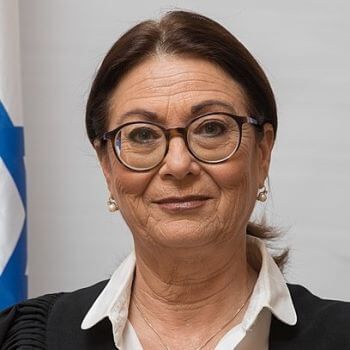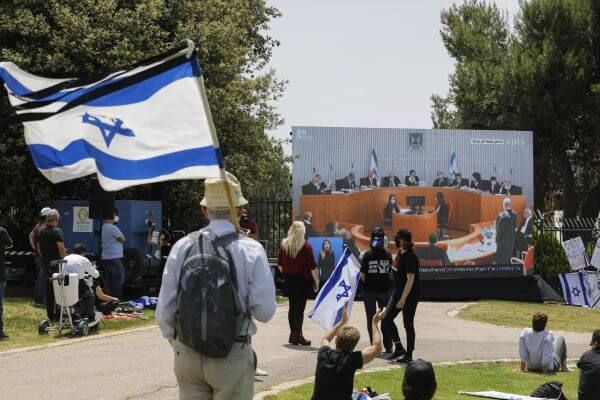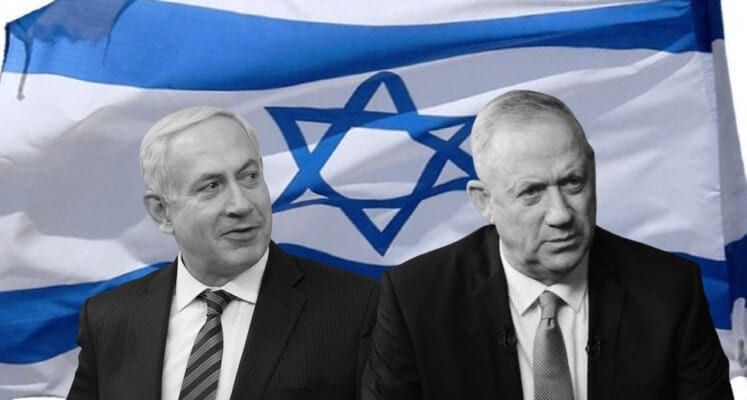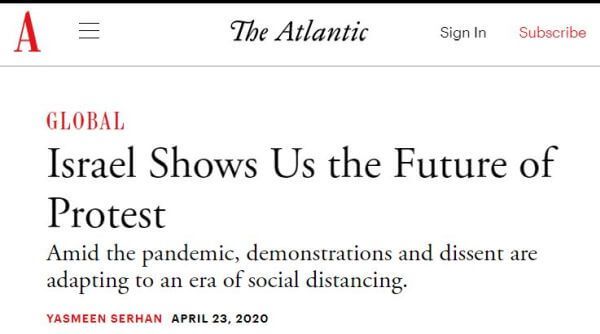Israel has been stuck in a political stalemate for 15 months. This is certainly unhealthy for the country and Israel needs a permanent government and an end to the current election cycle.
Over the last two days, the Supreme Court heard a series of petitions challenging the constitutionality of a power-sharing national unity agreement drawn up between the rival Likud and Blue and White parties.
Media reports such as the Associated Press, Reuters, and the Washington Post , for example , emphasized the fate of Prime Minister Benjamin Netanyahu and the likelihood of yet another round of elections. Valid stories, to be sure, but there’s a deeper element that the foreign press isn’t scratching the surface of.
What Israel is experiencing actually demonstrates that it is a vibrant democracy governed by the rule of law.
Join the fight for Israel’s fair coverage in the news
Background to the Hearings
Since April 2019, Israel has held three national elections, all of which resulted in political deadlock. Neither Benjamin Netanyahu nor Benny Gantz were able to form governing coalitions on their own.
Related Reading: 12 Things to Know About Israeli Elections and What Happens After
The very fact that Israel went through three election cycles while maintaining public order sets it apart from the rest of the Middle East. In a region characterized by autocrats and turbulent transitions of power, Israel is a beacon of democracy.
The coronavirus crisis put further pressure on the rival leaders to form a unity government. The two agreed to a power-sharing rotation: Netanyahu would serve as prime minister for the first 18 months of the governing term, and then Gantz would become prime minister for 18 months.
In order for the bitter adversaries to come together, numerous changes had to be made to existing laws. Anyone following English-language Israeli media coverage of the proceedings will have more nuanced understanding that comes with greater context. Some of the more notable — and controversial — legislative measures include the following:
- While Netanyahu serves as prime minister, Gantz will serve as vice prime minister – a brand new position which had to be created by law. During Gantz’s term as prime minister, Netanyahu will serve as his vice prime minister.
- Since Netanyahu is under indictment for corruption charges with his trial beginning at the end of May, the Knesset had to legislate that one can be vice prime minister even while under indictment.
- Numerous other technical laws have to be passed in order to enable this unity government to come together.
- There is controversy as to whether Netanyahu can serve as prime minister at all. While Israeli law allows a prime minister to remain in office if they are served an indictment, it is unclear whether one can form a new government and become prime minister while under indictment.
The opposition parties and numerous other groups petitioned to the Supreme Court, arguing that Netanyahu should not be allowed to become prime minister and that the new laws needed to enable this unity government to form should be struck down.
Related reading: The Top 7 Israeli News Sources in English
The Supreme Court

Israel’s Supreme Court serves as the state’s highest court and also the address for petitions against government and parliamentary decisions and laws. The court hears approximately 10,000 cases annually.
However, politically charged cases put the Supreme Court in a very delicate situation.
While the Supreme Court serves as a guardian for the rule of law and individual rights, Israel lacks a written constitution. A surprising number of regulations continue to be influenced by British and even Ottoman rule. Rulings that would be viewed as judicial review in some countries are often frequently regarded by Israelis as “judicial activism.”
Israeli media is certainly familiar with these tensions, but it’s not an issue that tends to appear in the Western papers.
The High Court consists of 15 justices, but most proceedings are held in panels of three, or even just one. The president of the Court President (Chief Justice), currently Justice Esther Hayut, may assign more judges to certain cases. Given the importance of this week’s hearings, Hayut assigned the maximum 11 justices to hear the challenges to the unity agreement. They include a solid cross sample of Israeli society: men and women, secular and religious, and Jewish and Arab.
Related reading: How Stable is Israeli Democracy?
The Hearings
The hearings were broadcast on television and the internet, providing full transparency for the proceedings. The justices heard presentations from all sides: attorneys for Netanyahu, Gantz, the Knesset, the attorney general’s office, opposition parties and the petitioning organizations.
The justices spent two days hearing arguments on whether Netanyahu can or cannot form a government while under indictment, and more arguments analyzing the legal strengths and weaknesses of the coalition agreement. The justices asked strong questions and made great effort to remove politics from the process.
A significant facet of the debate included whether the Supreme Court even has a place to intervene with political agreements regarding the legislative and executive branches.

Peaceful Protests
Aside from the process leading up to the dramatic Supreme Court hearings, Israeli citizens have been holding public demonstrations to express their strong opinions about the situation.
The Left have gathered outside the Knesset and in public squares demanding that Netanyahu not be allowed to form a government and protesting what they view as a corrupt coalition agreement. The Israeli Right has demonstrated outside of the court and even close to the homes of justices, demanding that the justices not interfere with what they view as judicial overreaching.
The government and the police went out of their way to make sure that demonstrations were allowed despite public health restrictions. Indeed, protesters were orderly and adhered to social distancing. Demonstrations featured speeches and chants – not violence or incitement, further demonstrating Israel’s healthy and vibrant democracy.
News sites like CNN, The Atlantic and France 24 focused on the social distancing.
Related Reading: The Chaos of Israeli Democracy
Regardless of what the justices rule, history is playing out in front of our eyes. Israel is working out complex political, legal, and constitutional issues in a fair, balanced, orderly and fully transparent process — as democratic societies.
Israel most certainly needs political stability. And a wide-ranging unity government would help the country heal after 15 months of elections and uncertainty.
But the process itself – involving all branches of Israel’s democracy and the rule of law – should make Israel and its supporters proud.
Image of Gantz and Netanyahu CC BY-NC pngimg.com, CC BY-ND Utenriksdepartementet UD and via Facebook/Benny Gantz;



